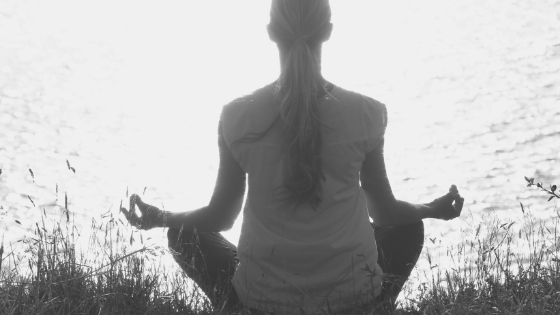Restorative practices for frontline medical providers, hospital leaders, and laboratory scientists to bolster themselves during the COVID-19 outbreak
The U.S. healthcare system currently represents a workforce of 18 million people. These are the individuals who are fighting a war right now. Unfortunately, it is a war for which the vast majority of our frontline has not been trained or equipped (as Bill Gates describes in his 2015 Ted Talk.)
We have heard the press conferences about efforts to ramp up the manufacturing of masks and testing kits. In my own community, a bespoke gin distillery is now making hand sanitizer and a local manufacturer, Boyd Technologies, is diverting its existing plant facilities to make medical masks and other protective gear. These are ingenious and inspiring endeavors and will soon, hopefully, bring some relief to a very stressed system.
In the meantime, many healthcare workers are relying on their immune systems to mount a strong response in the face of any direct exposure to Covid-19. This requires sleep, hydration, nourishment, and, very importantly, the ability to regularly activate one’s parasympathetic nervous system, avoiding the sustained activation of one’s sympathetic nervous system. Unfortunately, the latter tends to continue on overdrive during experiences of intense stress.
For a more technical explanation of why the parasympathetic nervous system is critical for immune function, please see this article by Abboud, Harwani & Chapleau (2012) which states: “...when the sympathetic nervous system prevails, the triangle becomes a “death triangle” with overactivation of the inflammatory response, whereas when the parasympathetic nervous system prevails, the triangle becomes a “survival triangle,” as a result of suppression of the inflammatory response…” In other words, activating the parasympathetic nervous system when one needs a robust immune response is vital. Ensuring that one does not remain in prolonged sympathetic nervous system activation is even more important. There is a plethora of research providing more nuanced analysis on these points.
What can our frontline medical providers, hospital leaders, and laboratory scientists do to bolster themselves during this time? Of course, prioritizing restorative, sustained sleep is critical. This is the type of deep sleep that shuts off the sympathetic nervous system and promotes healing, not the medium-depth sedation enabled by sleeping pills. I have recorded an exercise that can prepare the body and mind for this type of sleep. It may be worth an investment of 20 minutes to listen to this audio recording just before bed. Another option, which is extremely useful if you only have fewer than 7 hours to sleep, is to use the ancient practice of yoga nidra. The best yoga nidra practices that I have ever found are by Dr. Gina Sager, a board-certified surgeon who has studied this art for many years. She offers free yoga nidra here on her website.
You can also regularly calm your system in the midst of your workday. Try to find a chair and sit with your spine, neck and head upright and aligned, feet flat on the floor. Place your palms gently on your thighs and play one of these exercises on your phone. If you only have five minutes and want to take your body out of a stress response, choose the basic Diaphragmatic Breathing exercise. If you have eight minutes, and want to train your mind to be able to focus in the midst of a chaotic environment, choose the 61 Points exercise. And if you have 12 minutes and want to train your mind to maintain a perspective that is larger than your immediate reality -- a capacity that is critical for leaders confronting a crisis -- please choose the Awareness Expansion exercise.
I learned to teach these from a highly skilled meditation teacher, Dr. Justin O’Brien, who learned from his teacher, Swami Rama of the Himalayas. I would like to thank each of my teachers for sharing these practices with me and my network.
Karen Doyle Grossman, MA
 Karen's career has focused on enabling the genius of local communities to thrive in the wake of natural disasters, complex emergencies, and war. "I know that when a society’s existing infrastructure and systems are no longer available or functioning, innovation and collaboration can be leveraged to fill the void." Leadership characterized by humility, prudence, creativity, and wisdom, is easier to access when support structures -strategic, psychological, and physical - are in place. Her coaching practice helps executives access their gifts and intuition to discover more effective strategies for success. A current doctoral candidate in Leadership and Adult Learning at Columbia University, Karen’s research focuses on transformative learning and leadership in the face of existential threats.
Karen's career has focused on enabling the genius of local communities to thrive in the wake of natural disasters, complex emergencies, and war. "I know that when a society’s existing infrastructure and systems are no longer available or functioning, innovation and collaboration can be leveraged to fill the void." Leadership characterized by humility, prudence, creativity, and wisdom, is easier to access when support structures -strategic, psychological, and physical - are in place. Her coaching practice helps executives access their gifts and intuition to discover more effective strategies for success. A current doctoral candidate in Leadership and Adult Learning at Columbia University, Karen’s research focuses on transformative learning and leadership in the face of existential threats.



